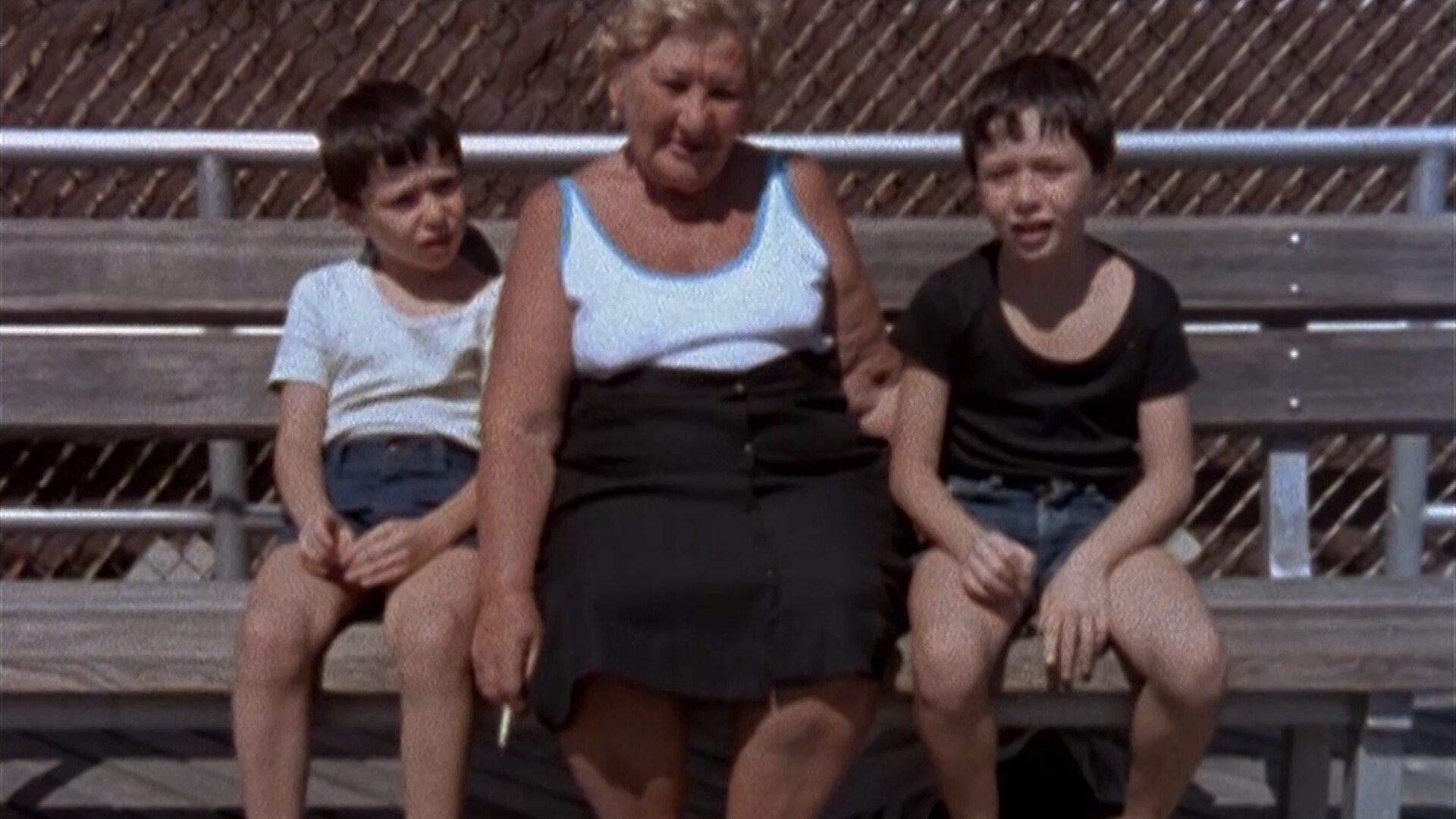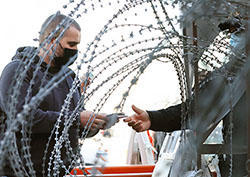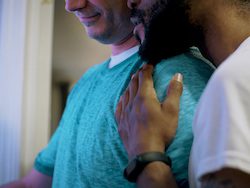Both History and Present Show Why We Should Help Refugees
By Yana Gitelman
Jan 27, 2020

The author's mother and her cousin at the Moscow airport just before they left for America in 1992.
(courtesy of Yana Gitelman)
I have two stories to tell, one that started about a year ago, one part of history. They are ongoing and connected stories, and I hope they motivate you to take action on behalf of refugees.
Last year a group of Jewish students at my high school in New York City contacted HIAS, wanting to find new ways they could get involved in the American Jewish movement for refugees and asylum seekers. I was the student who organized the events. I led the educational workshop on HIAS and the refugee crisis, utilizing HIAS’ DIY Education Program, with a peer and faculty advisor for visitors from a Muslim school. These students were members of the NYC Interfaith Network, which I joined immediately after the workshop.
One student, a Sudanese immigrant himself, said that the story of Abraham and Sarah reminded him of a quote from the Quran which says that God made us all different so we would have to learn to love each other. The teacher of our “History in Religion” elective responded to his comment, adding that the many fundamental similarities between the world’s three main monotheistic religions, all of which stress faith and love above all else, should prevail over our differences. This was the “a-ha” moment for me--where a group of kids from varied religions, political beliefs, and immigration stories came together for a 45-minute discussion of religious, political, economic, and moral reasons for why we must welcome the stranger. Many participants said they continued to discuss the ideas brought up in the workshop with their classmates, friends, and families. Many also shared my desire to help inspire change.
In November the Interfaith Network hosted a Seeds of Peace Dialogue Building conference at which roughly 40 students across New York City learned how to facilitate and contribute to healthy discussion. We learned to follow these principles: listen to understand rather than to respond; find common ground; empathize. We practiced by discussing the role of religion and stereotyping in our lives.
The “HIAS project” is now planning several initiatives, including an advocacy-based bake sale and a National Refugee Shabbat event at our school. In school and beyond, we plan to continue working to humanize the refugee and remind one another that the moral is political. My school community really connects with the refugee crisis and is eager to step in - we just need ways to do so. We encourage people of all ages, especially teenagers, to start the conversation in their own communities.
But my other story also motivates me to keep the conversation going. The story is my family’s and while it is undoubtedly like many other stories, its relevance has never been more important.
These are my father and mother’s stories: two families, same Minneapolis airport, a year apart. The first from Ukraine, arriving in 1991 with just $700 and a suitcase full of books; the second from Moscow in 1992, with just six pieces of luggage.
My family was lucky in that my parents found work within one year of their arrival. They held onto their language, religion, and immigrant friends, and they have remained informed and active citizens, voting at each election and giving back to their community.
I owe my life in America to HIAS. I feel that the more people learn about HIAS the more they would want to volunteer or donate in recognition of the amazing work that HIAS does. Our community would not be the same without it.
In 2019 immigration and the refugee crisis were in the news a lot. But if these issues still feel distant, or you struggle to sympathize with the people affected, look at the immigrant community around you. If your family has been in America for many generations and you don’t know how you got here, ask! Find your own connection to the immigrants and refugees striving for a better life today, because you are a product of that very struggle. In 2020 I hope that we all better understand how to be advocates and allies for today’s immigrants.



